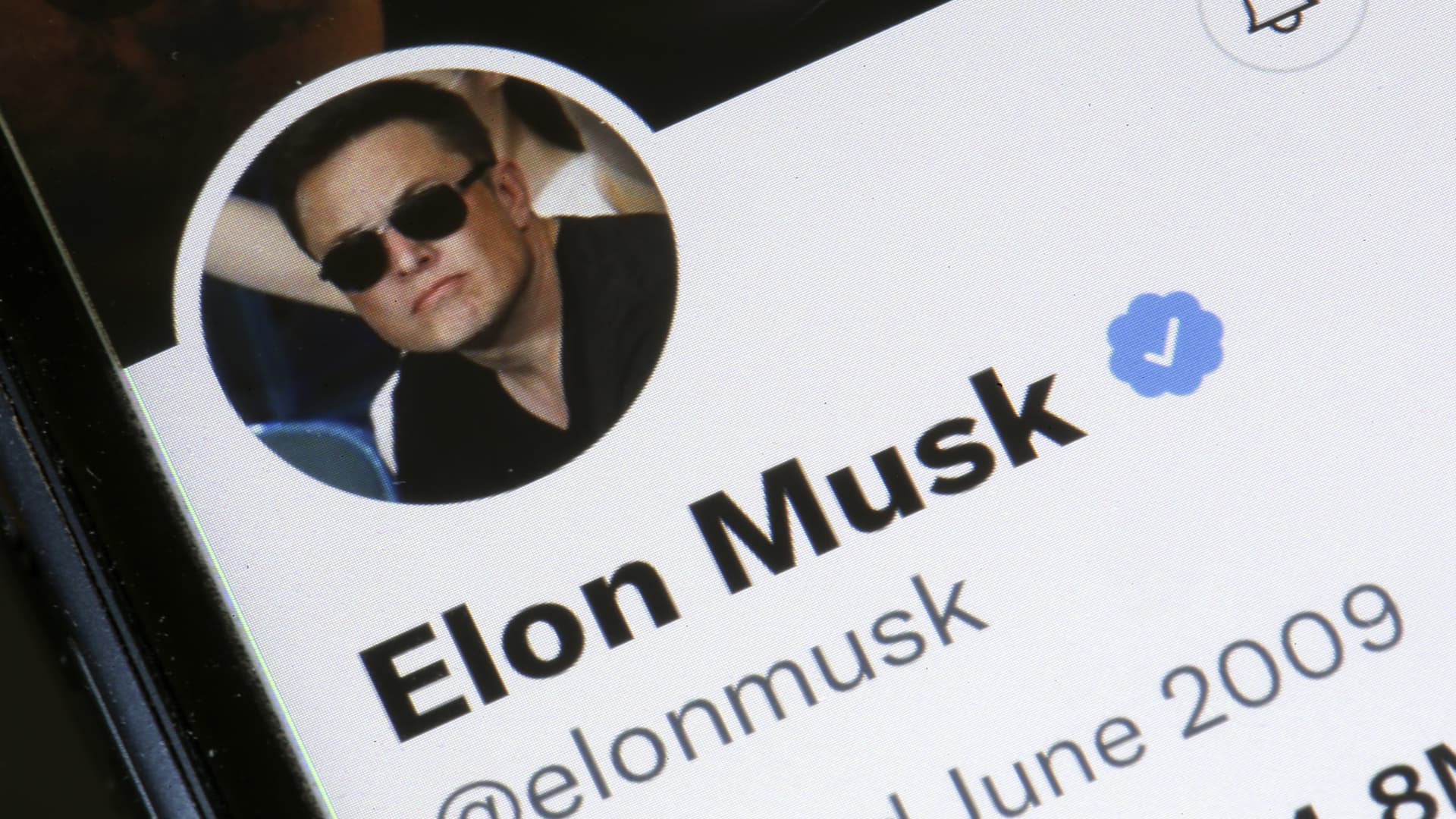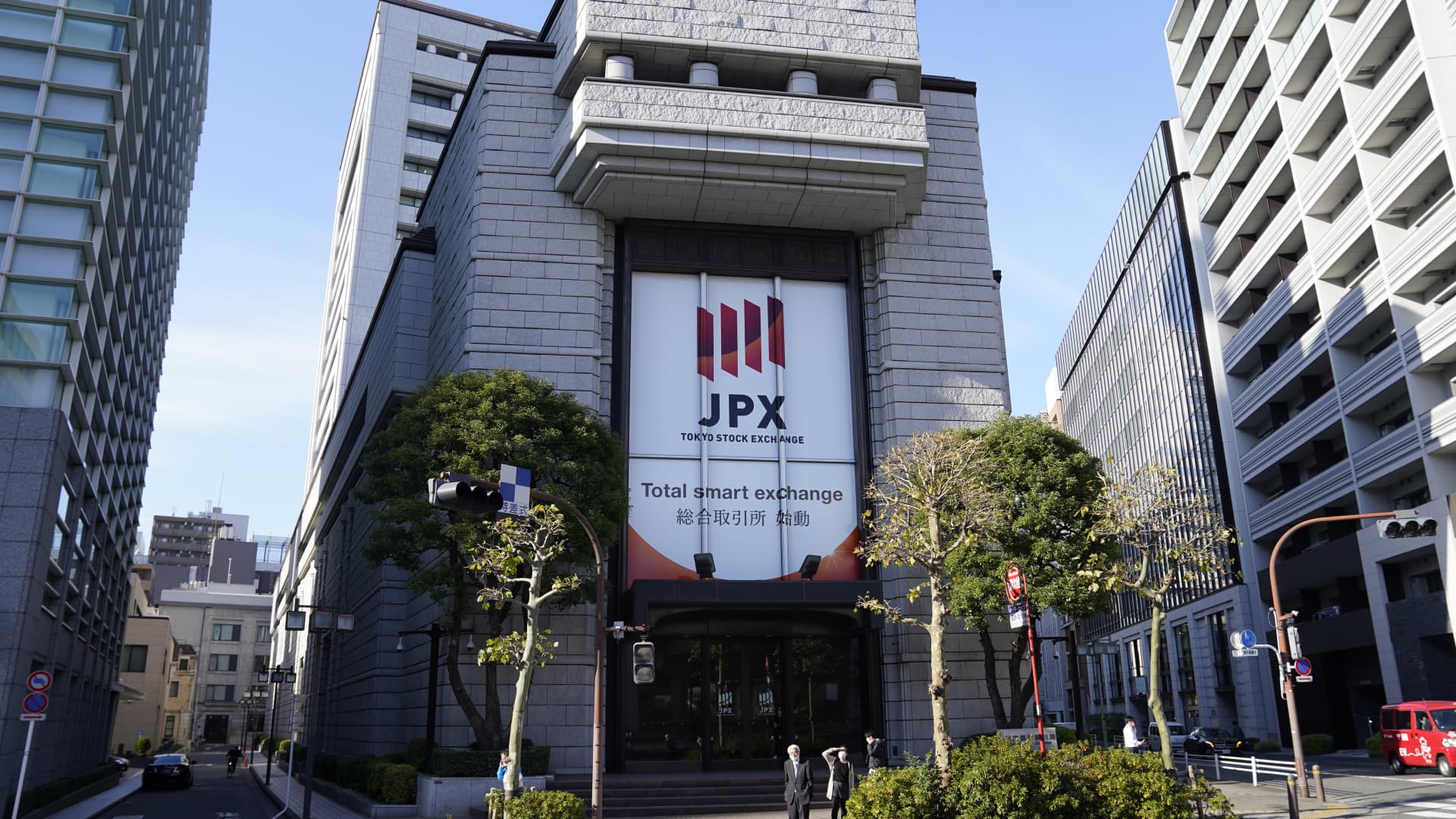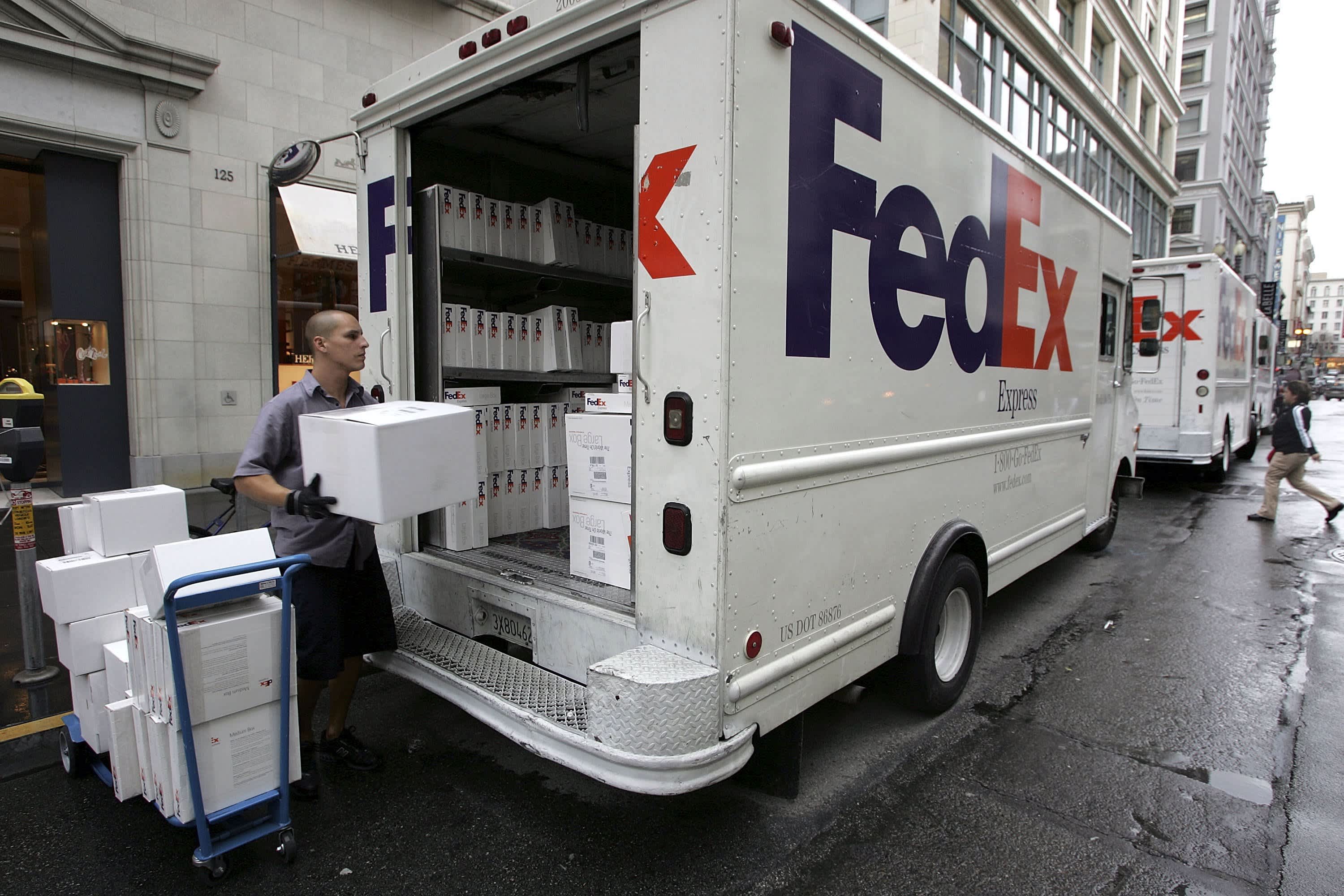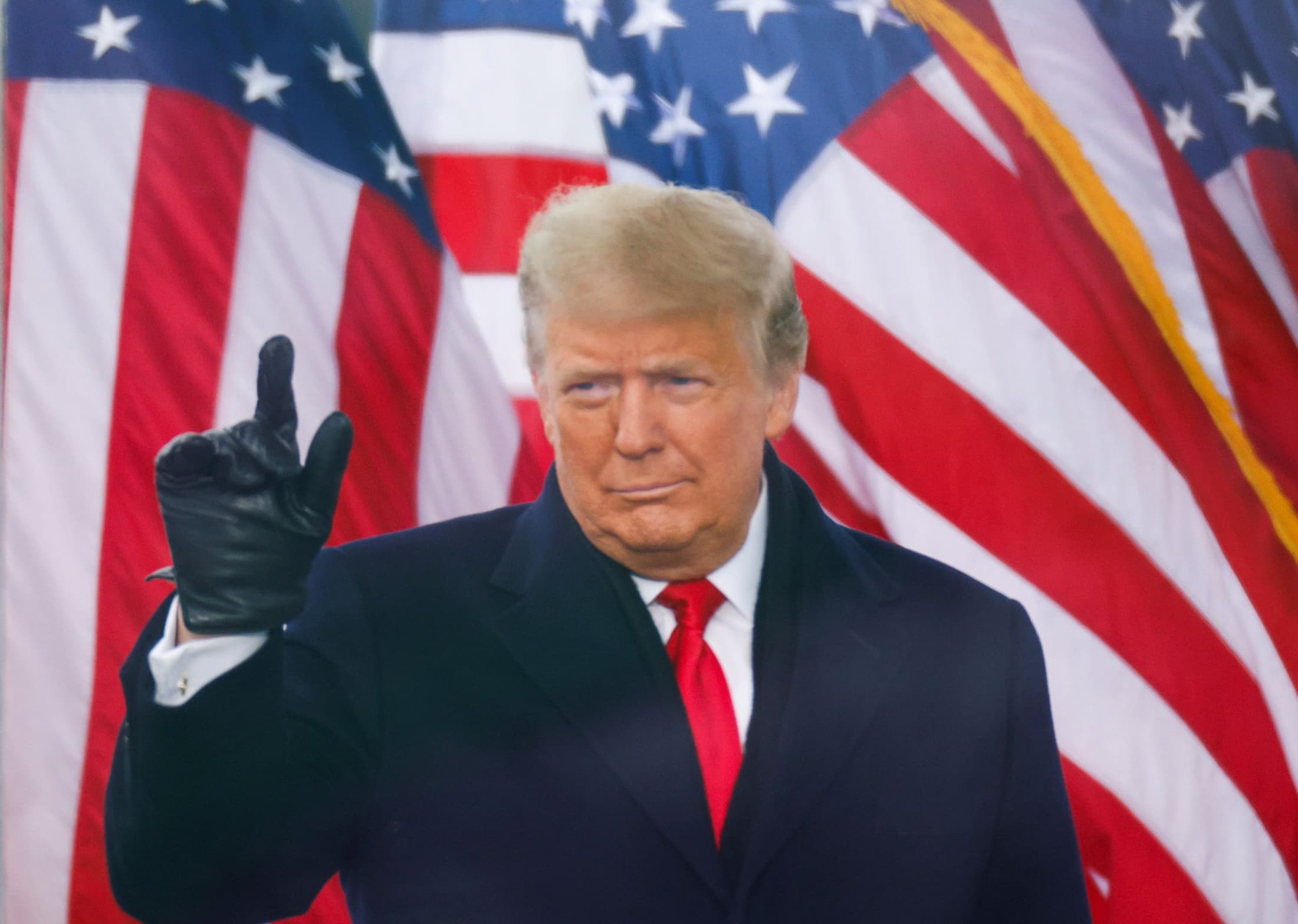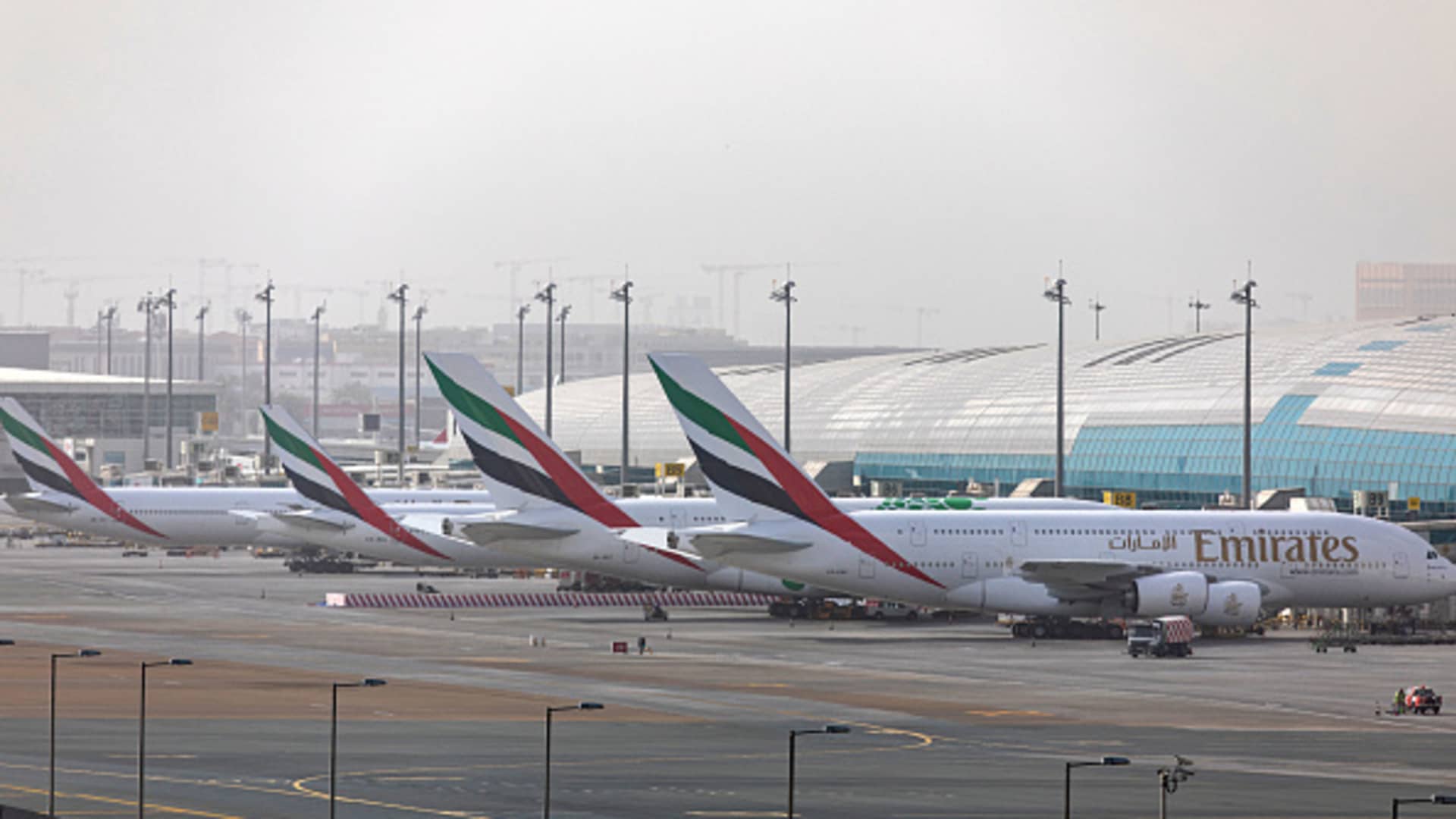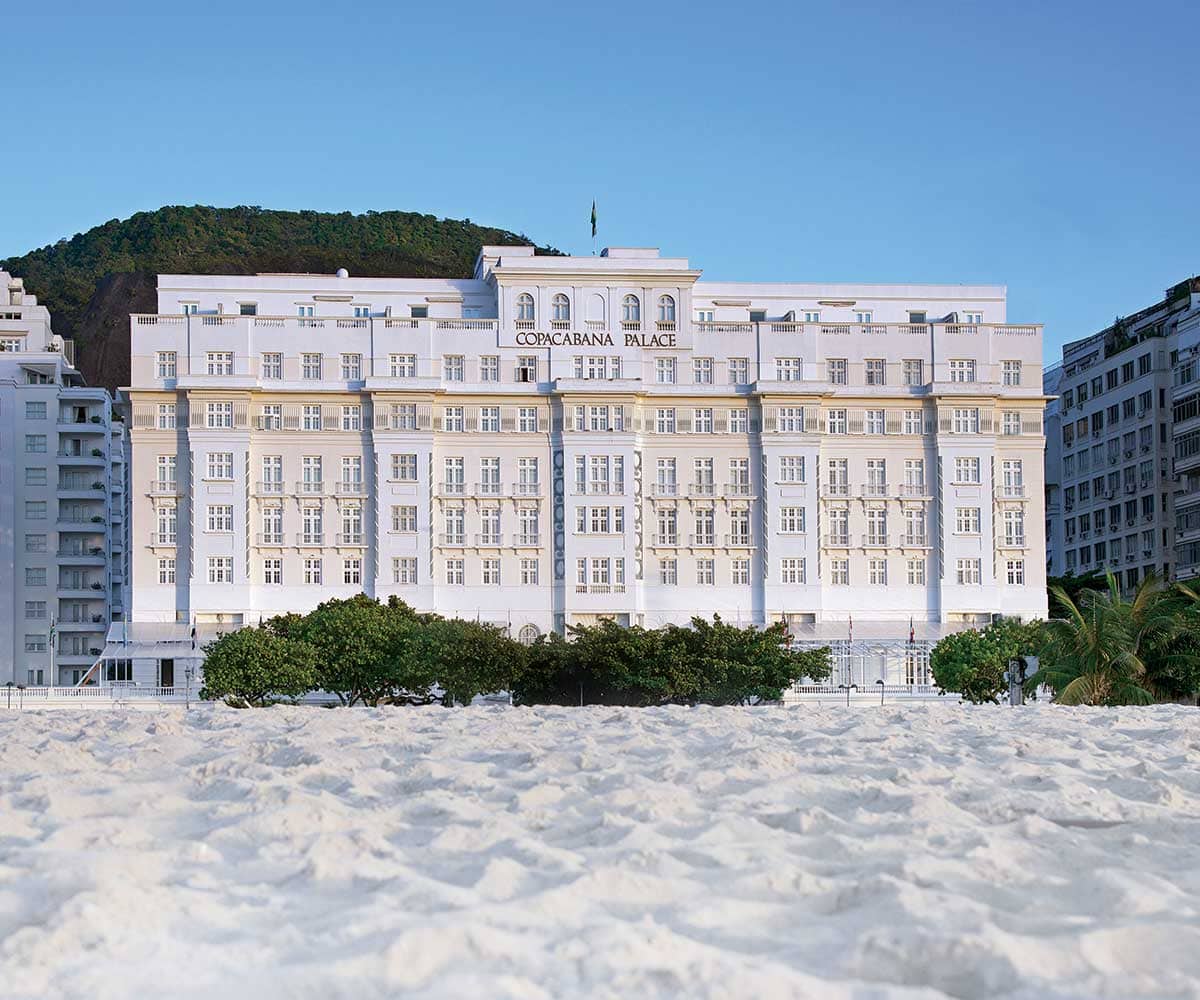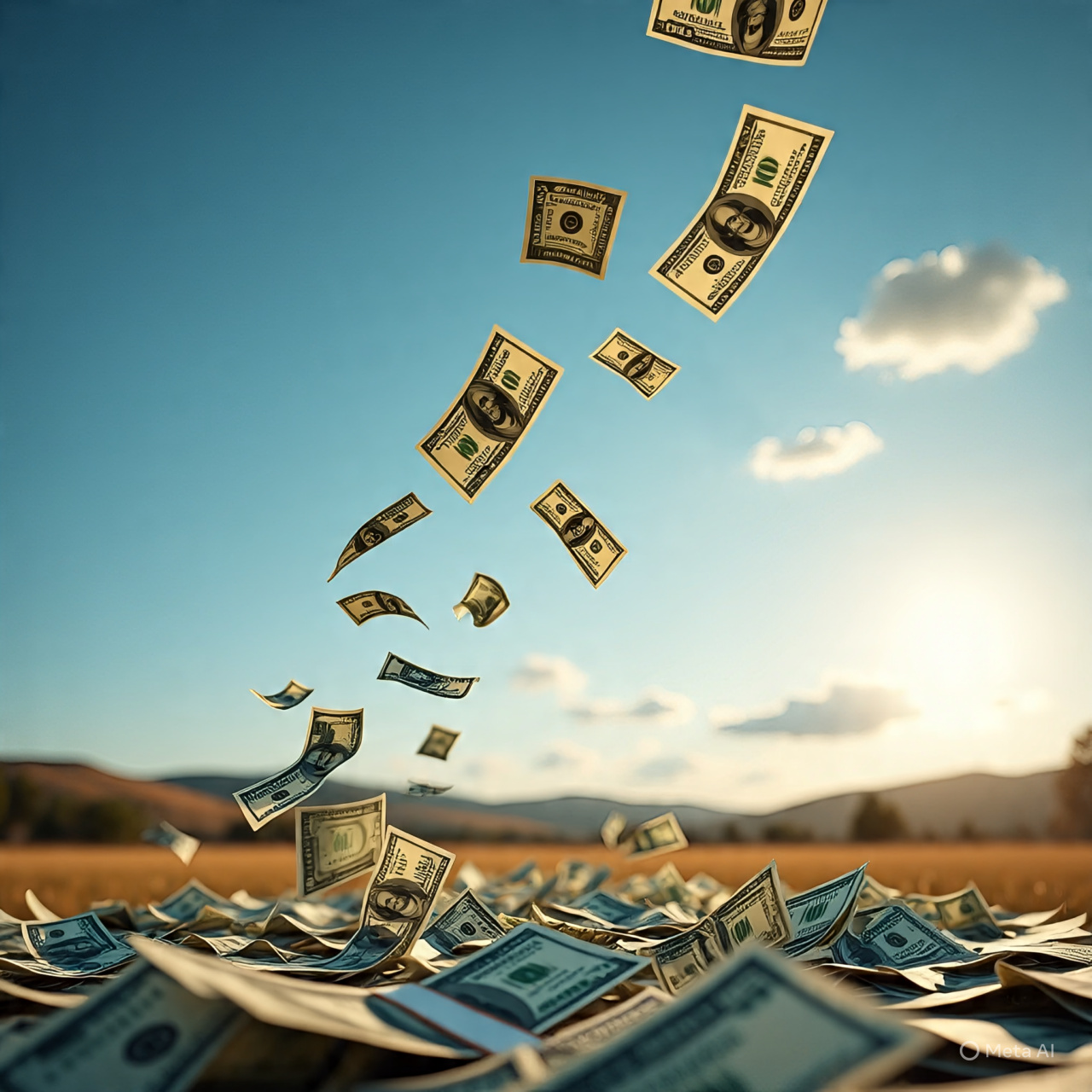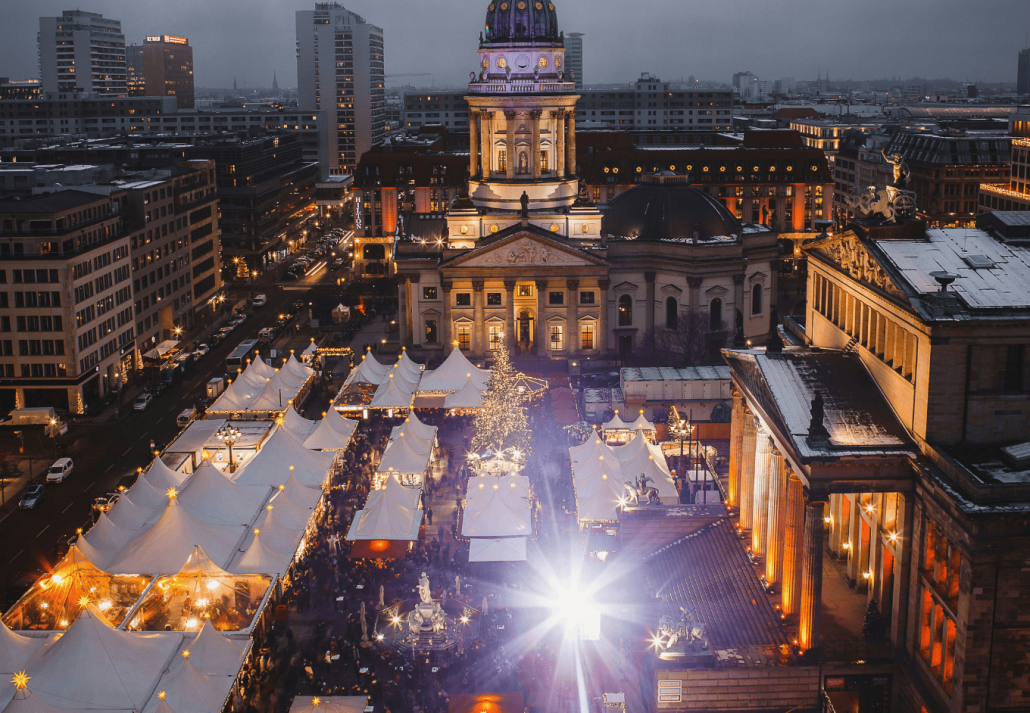UK announces first tranche of Russia sanctions, targets banks and wealthy individuals
The U.K. has slapped targeted economic sanctions against five Russian banks and three wealthy individuals.

U.K. Prime Minister Boris Johnson addresses the nation during a press conference on a plan for "Living with Covid" on February 21, 2022 in London, England.
Wpa Pool | Getty Images News | Getty Images
LONDON — The U.K. has slapped targeted economic sanctions on five Russian banks and three wealthy individuals following President Vladimir Putin's decision to send troops into eastern Ukraine.
Addressing lawmakers on Tuesday in the House of Commons, Prime Minister Boris Johnson said the first tranche of sanctions would target Rossiya, IS Bank, General Bank, Promsvyazbank and the Black Sea Bank.
The measures would also sanction three "very high net worth" individuals: Gennady Timchenko, Boris Rotenberg and Igor Rotenberg.
The individuals concerned will see their U.K. assets frozen and be banned from traveling to the country, Johnson said. All U.K. individuals and entities will also be barred from having dealings with them, he added.
Johnson said the move to sanction Russia had arisen despite himself and several other world leaders giving Putin "every opportunity" to pursue his aims via diplomacy.
"We will not give up," Johnson said. "We will continue to seek a diplomatic solution until the last possible moment but we have to face the possibility that none of our messages have been heeded and that Putin is implacably determined to go further in subjugating and tormenting Ukraine."
He added, "This the first tranche, the first barrage of what we are prepared to do and we hold further sanctions at readiness to be deployed alongside the United States and the European Union if the situation escalates still further."
His comments come as EU lawmakers prepare to impose sanctions against Russian politicians, banks and to limit the ability of the Kremlin to access the bloc's capital, financial markets and services. A final decision on the EU's package of sanctions is expected later Tuesday.
Meanwhile, Germany on Tuesday halted the certification of the highly contentious Nord Stream 2 gas pipeline designed to bring natural gas from Russia directly to Europe.
'Much, much tougher' sanctions in reserve
Johnson said Putin had "flagrantly violated" international law by formally recognizing Luhansk and Donetsk as independent states. The Russian president on Monday ordered troops to the breakaway areas to "perform peacekeeping functions."
The directive drew condemnation from around the world, with policymakers admonishing a "blatant" and "unacceptable" violation of international law.
The developing situation has ratcheted up fears of a major conflict in Europe following months of simmering tensions over Russia's military deployment on the borders of Ukraine.
Ukrainian President Volodymyr Zelenskyy said in a televised address Tuesday that the country remains "dedicated to diplomatic means of solving this issue."
"This is our choice. We are on our land. We're not afraid of anyone and everyone," he said, according to a transcript by NBC News.
The U.K. prime minister said it was "absolutely vital" to keep further sanctions in reserve in view of the escalating crisis.
"We want to stop Russian companies from being able to raise funds in sterling or indeed in dollars. ... We want them to stop raising funds on U.K. markets and we want to strip away the veil that conceals the ownership of property in this country and indeed throughout the West," Johnson said.
"The measures that we have prepared are much, much tougher still and we will have absolutely no hesitation in implementing them."
'Is that it?'
Some lawmakers and strategists said Johnson's measures failed to go far enough, suggesting the U.K. government's response showed weakness at a time when a more meaningful response was crucial.
"Is that it?" Caroline Lucas, a member of Parliament for the U.K.'s Green Party, said via Twitter.
"Sanctioning 5 banks and 3 oligarchs suggests the Government cares more about protecting Tory party donations and London's laundromat than it does about imposing meaningful sanctions against Moscow," she said.
The term "London laundromat" refers to a widely used accusation that the U.K. has become a haven for illicit finance from Russia in recent years.
Meanwhile, Tobias Ellwood, the Conservative chair of the Commons Defense Committee, said that while he welcomed the actions taken by the government, "sanctions alone will not be enough."
He added, "Indeed, untargeted sanctions may play into Putin's plan to pivot Russia ever closer to China."
Ed Davey, leader of the Liberal Democrats, said the government should seize the assets of all Russian oligarchs in the U.K., adding that international cultural events — such as the final of UEFA's Champions League soccer tournament — must be prevented from taking place in Russia.
In response, Johnson said more action was to come from his government and it was "inconceivable" that major international sporting events could now take place in Russia.
Timothy Ash, emerging markets strategist at BlueBay Asset Management, described the U.K.'s response as "embarrassing."
"I mean why bother?" Ash said. "The U.K. just showed its weakness and [a] soft spot for the London Laundromat. Even the Germans: EU finally put skin in the game with NS2 off [the] table, some more serious banks and sovereign debt sanctions."

 Koichiko
Koichiko 







